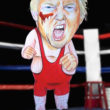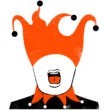Editor’s note: As the most compressed, earliest, and most costly primary cycle in the history of the nation’s presidential elections narrows the field to two Democrats and one or two Republicans, with the Rev. Mike Huckabee competing for the vice presidency, one potential independent candidate waits in the wings. He is the current mayor of New York, not to be confused with the former mayor, who spent $50 million to win one convention delegate before dropping out and endorsing John McCain.
Although Rudy Giuliani didn’t abandon the Republican race for lack of money, his million-dollar delegate is living proof that running for the presidency is an absurdly expensive proposition. Barack Obama raised $32 million on the eve of Super Tuesday. Hillary Clinton is flush with cash. Mitt Romney wrote an $18 million check to stay in a race before bowing out to John McCain. And McCain just made a multimillion-dollar media buy on a credit line strengthened by his hard-earned status as the front-runner.
So what? New York mayor Michael Bloomberg spent more than $150 million, mostly his own money, in two successful self-financed campaigns for mayor of New York. To put that in perspective, that’s more than Senator Hillary Clinton spent on her campaign through the Super Tuesday primaries. Romney, the richest candidate to contend for a nomination this year, is worth some $250 million. Bloomberg measures his personal wealth in billions.
Bloomberg maintains that he’s not interested. “I just said I’m not a candidate. It couldn’t be clearer,” he told a reporter in January. Yet a small cottage industry is being built on the mere possibility of a Mike Bloomberg candidacy.
Douglas Schoen, a political consultant who has worked for Bill Clinton and Michael Bloomberg, has a new book out making the case that this is the year for a third-party candidate to take the White House.
Venture capitalist James Robinson IV tells the New York Sun that a data analysis company he founded is dedicated to proving the feasibility of a Bloomberg candidacy—and that “empirically he can win.”
A “Draft Bloomberg” mobile billboard is cruising Manhattan, paid for by a Bloomberg backer who is also the owner of the mobile billboard company. “Support Mike Bloomberg for President,” the sign reads, describing the billionaire mayor as the “only presidential candidate that can’t be bought.”
Bloomberg himself has spent a substantial (but unreported) sum on pollsters, focus groups and political consultants, preparing for a candidacy he denies will occur. In January he upstaged a cast of preterite presidential personages—including Gary Hart, Chuck Hagel, Sam Nunn, Bill Cohen, and David Boren—who were convening at the University of Oklahoma for a conference on the need to transcend partisan politics in the race for the presidency. And just by showing up with his checkbook, Bloomberg wins what Karl Rove calls the “money primary.”
Mike Bloomberg could spend $1 billion and alter the dynamic of the 2008 presidential race—if he makes his move in time. But will he?
Ronald B. Rapoport and Walter J. Stone have studied third-party and independent candidates for the American presidency and collaborated on the book Three’s a Crowd: The Dynamic of Third Parties, Ross Perot, and Republican Resurgence. While it’s too early to handicap a Bloomberg candidacy, the two scholars here consider the variables in the equation that would entice Bloomberg into the race—and those that might make him a winner rather than a spoiler.
SIGNIFICANT THIRD-PARTY AND INDEPENDENT PRESIDENTIAL candidates are rare in American history. Yet recent experience teaches us that they can have a major impact on our politics. Ralph Nader’s relative handful of votes in Florida and New Hampshire in 2000 made all the difference in that exquisitely close election. H. Ross Perot, running as an independent, captured 19 percent of the popular vote in 1992, the largest share by any independent or third-party candidate since the popular ex-president Theodore Roosevelt ran as a Progressive in 1912.
Speculation is rampant that New York City mayor Michael Bloomberg is contemplating running as an independent candidate in 2008. Despite coy denials from the Bloomberg camp, his appearance on the cover of Newsweek, his consultation with ballot access experts, and his use of pollsters and focus groups to explore a run belie his apparent indifference. According to Bloomberg’s close associates, he will run only if he thinks he can win. If he will not be satisfied with Perot’s historic vote share, what can he learn from the Perot experience, and how can he realistically hope to improve on Perot’s performance?
For an independent or minor-party candidate to succeed there must be both a “push” away from the two major-party candidates and a “pull” toward the alternative candidate. Both elements are important; they are not merely two sides of the same coin. The push away from the two major parties means that significant numbers of people must be dissatisfied with the policies, issue stands, and personal characteristics of both the Democratic and the Republican candidates. The pull toward the independent or third-party candidate must reflect a combination of compelling policy or issue commitments and the personal appeal of the alternative candidate.
PUSH-ME, PULL-YOU—Are the push conditions ripe for a Bloomberg candidacy in 2008? Certainly there is widespread dissatisfaction with the performance of the Bush administration on a host of policy questions, and a strong sense that things are running on the wrong track. But the danger, from Bloomberg’s perspective, is that this discontent will be tapped by the Democratic candidate, who, running as the alternative to the Republicans, will also run away with the election.
Although the out party generally benefits from failures of the in party, the Democrats’ ability to exploit this opportunity may be compromised in 2008. Control of the government is divided between the two parties, with Democratic majorities in both houses of Congress. Chances for the Democrats of winning the White House would be stronger if they had not won a Congressional majority in 2006 and could tap public discontent with the Congress. Now, they too can be tarnished with policy failures such as their inability to end the war in Iraq, to foresee and alleviate the serious downturn in the economy, and to come up with an acceptable immigration policy. Polls show that the public’s dissatisfaction with Congress and the Democrats in that branch is every bit as high as their anger at the Bush administration.
The strength of the push away from the major parties will depend on whom they nominate as presidential candidates. If the Democrats nominate Hillary Clinton, whose “negatives” are famously high with much of the electorate and who epitomizes partisan polarization, the stage may be set for Bloomberg to capitalize on discontent with both parties. If the Democrats nominate Barack Obama, on the other hand, they may reduce the push factor and lower the susceptibility of the electorate to an independent candidate’s appeal. Obama has demonstrated an attractiveness to independents, and even some Republicans, that Clinton cannot match, and his call for a less partisan politics resonates with many for whom Clinton is anathema.
On the Republican side, John McCain retains much of the appeal to independent voters he showed in 2000, so an Obama-McCain matchup is unlikely to generate the push that would embolden a Bloomberg run, whereas Clinton versus any of the other leading Republican contenders would provide a more promising opening for Bloomberg.
POLS APART—Whoever the parties nominate, there is another aspect to the political landscape that works against a Bloomberg candidacy. Ironically, this factor is the very cause most frequently cited as the reason Bloomberg may run: the polarization between the two major parties. The argument is that people are tired of the partisan bickering, that they want to see Washington address and solve real problems rather than engage in constant competitive gamesmanship. What is needed, the argument goes, is someone who can rise above the partisan fray and provide the competence and leadership necessary to get beyond short-term political interests. A variant is that both parties are in thrall to their bases on the extreme left or right, and there is a vast moderate middle that goes unrepresented when Democratic and Republican leaders are so polarized.
While there is some truth to this story, it does not ultimately play out to the benefit of an independent centrist candidate. The problem is that a polarized party system does not provide much of a foothold for a candidate in the middle. In fact, it generates strong incentives for voters not to “waste their vote” by voting for the independent.
In 1992, Perot was a centrist in that he was positioned between the two major parties on virtually every issue that sharply divided Republicans from Democrats. But his supporters were not attracted to him on those issues. The more people cared about the issues that divided the two major parties, the more likely they were to move toward the party closer to them, no matter how attracted to Perot they were for other reasons. The “pull” toward Perot came not on the issues that divided the parties, but on issues on which he was distinctive from Clinton and Bush, and on which Democrats and Republicans were not all that different from each other.
Thus, a big part of Perot’s appeal was on issues such as reform (eliminating special-interest influence and making government more responsive); reducing the budget deficit; and a cluster of “economic nationalism” issues, including free trade, globalization and foreign intervention. On these issues, the major parties were not sharply polarized, which gave Perot the opportunity to mobilize a distinctive constituency that was not only against something but that also embraced his positive alternatives.
Therefore, even if the Democrats nominate the more polarizing Hillary Clinton, and the Republicans nominate Huckabee or Mitt Romney, the Perot experience suggests that Bloomberg cannot run successfully only as a centrist. Rather, Bloomberg must find issues that differentiate him from the two major-party nominees on policy questions. Although he has not yet done this, the issues he selects may be determined by the candidates he would face. He still has time. After all, Ross Perot did not make the first of his famous appearances on Larry King’s talk show until February 20 of 1992.
SHOW ME THE MONEY—Another reason Bloomberg can wait is that he, like Perot in 1992, does not have to worry about raising money. Perot ending up spending $62 million in 1992, and many observers were convinced that Perot won his 19 percent on the strength of his personal fortune. Like Perot before him, Bloomberg has to recognize that much of the discussion of his potential candidacy revolves around his willingness to become, as Newsweek trumpeted in its cover story: “the Billion Dollar Wild Card.” A billion dollars goes a long way, and by spending sixteen times as much as Perot did, Bloomberg might be able to engineer a massive re-orientation of the race, based on his ability to reach and convince voters of his worthiness.
However, the idea that Perot, Bloomberg, or any candidate can buy a national election is flat wrong. Conveniently forgotten in accounts emphasizing Ross Perot’s personal wealth is the fact that his initial candidacy took off in the late spring and early summer of 1992 with remarkably little spending on his part. In fact, in the late spring of 1992 when he became the first independent candidate in history to lead in three-way trial-heat polls, he had spent less even than nomination losers Paul Tsongas and Pat Buchanan, and only a third as much as either Clinton or Bush. His campaign relied instead on a chaotic but inspired army of volunteers who took ownership of the campaign and reflected the theme of his candidacy—the ability of ordinary voters to change politics.
Even after he re-entered the race on October 1, the keys to Perot’s success were not primarily the large amounts of money he spent from that point on, but his success in the debates. The invitation to participate in the debates came not because he’d spent a lot of money, but because of the support he commanded in the spring. Neither major-party candidate wanted to alienate Perot’s “legions” by excluding him. Money alone could not explain the phenomenon of Perot’s success, and it will not of itself attract voters to Bloomberg.
PEROT’S LEGACY—Many of the issues stressed by Perot remain unresolved: economic nationalism (including concerns about immigration, foreign involvement and unfair trade agreements), the budget deficit (which has ballooned under President George W. Bush), and governmental reform. In a recession, budget concerns ring hollow. Governmental reform will, no doubt play a role, but it has rarely been enough by itself. What that leaves is the economic nationalism issues.
Bloomberg’s record on immigration precludes a nativist appeal, which should be left to Lou Dobbs. Bloomberg could take a somewhat softer tone against globalization and free trade, much as Obama has in the primary campaign, and chastise both parties for being too quick to support free trade and globalization. A Clinton-McCain contest, coupled with a dramatic recession, might provide the opening to tempt Bloomberg into the arena. A humane form of economic nationalism, promising across-the-board reform to rethink our global economic and foreign policies, promoting fair labor standards and environmental sensitivity, might be a strategy more to his liking.
So a potential Bloomberg candidacy is on hold—for the moment. Whether it makes sense for him to run, especially since he appears to be willing to run only if he can actually win, depends on the Democratic and Republican nominees, their appeals and the issues they leave him, together with his ability to mobilize a constituency around those issues.
Michael Bloomberg is not Ross Perot. It is likely, however, that if he runs and attracts a significant vote, he will do so by following the pattern established by Perot: exploiting the discontent pushing people away from the two parties and pulling these discontented folks toward distinctive issues that do not differentiate the parties. Although his money will help, it will be these factors, more than the hundreds of millions he will spend on his campaign that will contribute most to Bloomberg’s success.
American politics occasionally produces surprises. An independent President Bloomberg would be a whopper. But it’s not impossible, especially if the American people are as fed up as some believe.
Ronald B. Rapoport is a professor of government at the College of William and Mary. Walter J. Stone is a political science professor at the University of California, Davis. A second edition of their book Three’s a Crowd: The Dynamic of Third Parties, Ross Perot, and Republican Resurgence was just released in paperback by the University of Michigan Press.






0 Comments